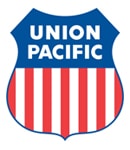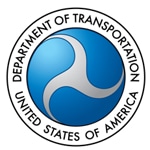
NTSSA establishes protections against retaliation for public transportation agency employees who engage in whistleblowing activities related to public transportation safety or security. FRSA provides protections against retaliation for railroad carrier employees who report a work-related injury or engage in other whistleblowing activities related to railroad safety or security. These protections extend to employees of contractors and subcontractors who do work for public transportation agencies and railroad carriers.
Both provisions were enacted by the 9/11 Commission Act of 2007. FRSA was amended in 2008 to prohibit railroad carriers from denying, delaying or interfering with employees’ medical or first aid treatment. The FRSA amendments also require that injured employees be promptly transported to the nearest hospital upon request.
“Railroad workers have the right to report injuries and to follow their doctor’s treatment plans for injuries sustained in the course of their employment without fearing that they will be retaliated against,” said Assistant Secretary of Labor for Occupational Safety and Health Dr. David Michaels. “Railroad and public transit agency workers must never be silenced by the threat of losing their job when their safety or the safety of the public is at stake.”
In 2010, OSHA published an interim final rule and requested public comments. The final rule responds to the comments, incorporates recent case law under the statutes and updates the rules to improve both employees’ and employers’ access to information about the case during OSHA’s investigation and their ability to participate in OSHA’s investigation.
OSHA’s Whistleblower Protection for Public Transportation Agency Workers* and Whistleblower Protection for Railroad Workers* fact sheets explain who is covered under the acts, protected activity, types of retaliation and the process for filing a complaint.
OSHA enforces the whistleblower provisions of 22 statutes protecting employees who report violations of various securities, commercial motor vehicle, airline, nuclear power, pipeline, environmental, rail, maritime, health care, workplace safety and health, and consumer product safety laws and regulations. For more information, please visit www.whistleblowers.gov.
Under the Occupational Safety and Health Act of 1970, employers are responsible for providing safe and healthful workplaces for their employees. OSHA’s role is to ensure these conditions for America’s working men and women by setting and enforcing standards, and providing training, education and assistance. For more information, visit www.osha.gov.
 The U.S. House passed a six-year surface transportation reauthorization and reform bill that calls for more than $300 billion in federal funding for highway, transit and rail programs. If approved by the full Congress and signed by President Obama, the bill would become the first long-term transportation law passed since 2005.
The U.S. House passed a six-year surface transportation reauthorization and reform bill that calls for more than $300 billion in federal funding for highway, transit and rail programs. If approved by the full Congress and signed by President Obama, the bill would become the first long-term transportation law passed since 2005. Scotts Bluff County has joined Gering in requesting the Federal Aviation Administration change its regulation that increases the number of flying hours pilots must have for commercial flights.
Scotts Bluff County has joined Gering in requesting the Federal Aviation Administration change its regulation that increases the number of flying hours pilots must have for commercial flights. SMART Transportation Division represented engineers, conductors, and transportation specialists have ratified their tentative agreement with Tri-Rail/Transdev.
SMART Transportation Division represented engineers, conductors, and transportation specialists have ratified their tentative agreement with Tri-Rail/Transdev.  GREAT SALT LAKE — One of the strangest and most striking places in Utah — an enormous oddity that scientists say was created accidentally by human engineering — is getting a bit of a remodeling job.
GREAT SALT LAKE — One of the strangest and most striking places in Utah — an enormous oddity that scientists say was created accidentally by human engineering — is getting a bit of a remodeling job. WASHINGTON – A congressional proposal that would see much heavier trucks on the nation’s highways will cost taxpayers billions of dollars in damaged roads and bridges while further straining already depleted federal coffers, one of the nation’s top transportation representatives said Wednesday.
WASHINGTON – A congressional proposal that would see much heavier trucks on the nation’s highways will cost taxpayers billions of dollars in damaged roads and bridges while further straining already depleted federal coffers, one of the nation’s top transportation representatives said Wednesday. The U.S. Department of Transportation (USDOT) last week
The U.S. Department of Transportation (USDOT) last week